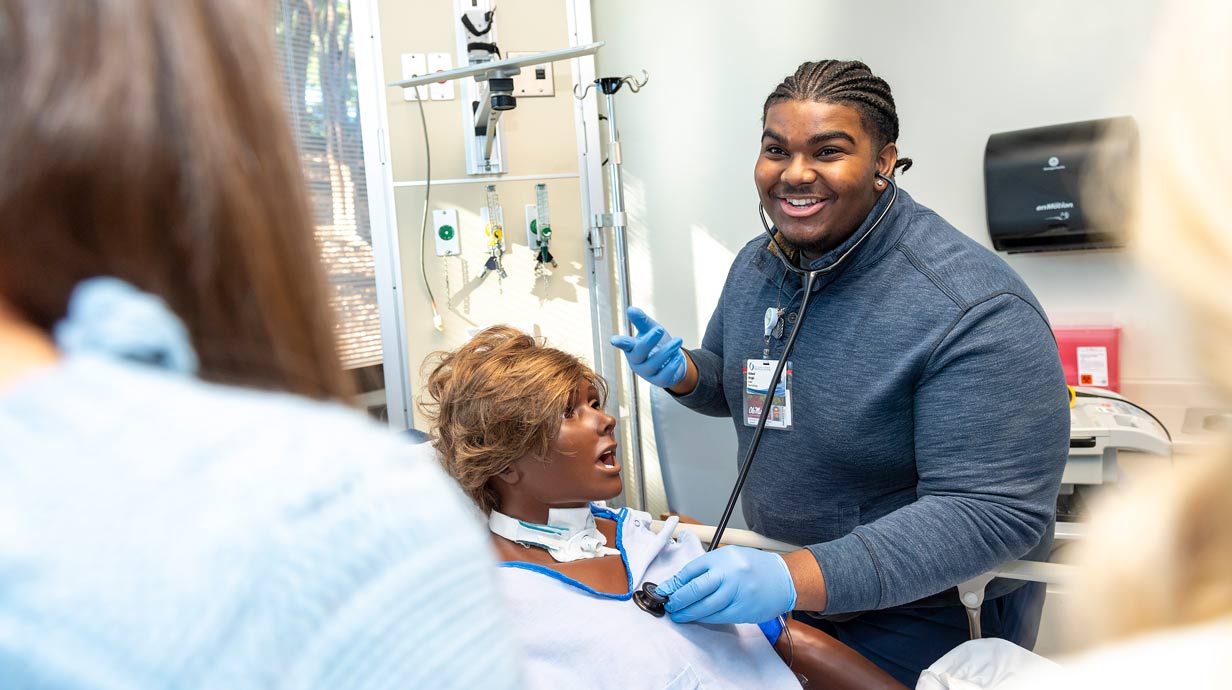Nursing Science vs. Naval Science: Understanding Two Distinct Disciplines

Nursing science and naval science: a comprehensive overview
Nursing science and naval science represent two distinct fields of study with unique principles, methodologies, and applications. While both are scientific disciplines that require specialized knowledge and training, they serve different societal functions and operate in separate domains. This article explores the fundamental aspects of both fields, highlight their definitions, historical development, core principles, and practical applications.
Understand nursing science
Nursing science form the theoretical and research foundation of the nursing profession. It encompasses the systematic study of health, illness, and human responses to both, with the goal of enhance patient care through evidence base practice.
Definition and scope
Nursing science can be defined as the body of knowledge that underpin nursing practice, education, and research. Itintegratese concepts from natural sciences, social sciences, and humanities to develop theories and frameworks that guide nursing interventions. The scope of nursing science extend beyond direct patient care to include health promotion, disease prevention, and population health management.
As a discipline, nursing science is characterized by its holistic approach to human health, consider physical, psychological, social, and spiritual dimensions ofwell beee. This comprehensive perspective distinguish nurse from other healthcare disciplines that may focus more narrowly on specific bodily systems or disease processes.
Historical development
The evolution of nursing science parallel the professionalization of nursing itself. While nursing care has existed throughout human history, modern nursing science begin to take shape in the mid 19th century witFlorence Nightingalele’s work. Nightingale’s systematic approach to healthcare delivery and her emphasis on data collection and analysis lay the groundwork for nursing as a scientific discipline.
Throughout the 20th century, nursing science continue to develop with the establishment of nursing theories by pioneers such as Virginia Henderson, Dorothea Orem, and Martha rogers. These theoretical frameworks helped define nursing’s unique contribution to healthcare and provide conceptual models for research and practice.
The latter half of the 20th century see the expansion of nursing research and the development of doctoral programs in nursing, far solidify nursing’s identity as a scientific discipline with its own body of knowledge and research methodologies.
Core components and methodologies
Nursing science incorporate several core components:
-
Nursing theories
conceptual frameworks that describe, explain, and predict nursing phenomena -
Research methodologies
both quantitative and qualitative approaches to generate nursing knowledge -
Evidence base practice
the integration of best research evidence with clinical expertise and patient values -
Ethics
principles and values that guide nursing ddecision-makingand conduct
Research methodologies in nursing science span a wide spectrum, from randomize control trials to phenomenological studies explore live experiences. This methodological diversity reflect nursing’s unique position at the intersection of biological science and human experience.
Applications in practice
Nursing science direct inform clinical practice through:
- Development of assessment tools and intervention protocols
- Implementation of evidence base practices to improve patient outcomes
- Creation of care models that address complex health needs
- Design of health promotion and disease prevention strategies
The practical application of nursing science extend beyond hospital settings to community health centers, schools, workplaces, and homes. Advanced practice nurses apply nursing science principles in specialize roles such as nurse practitioners, clinical nurse specialists, nurse anesthetists, and nurse midwife.
Education and career pathways
Education in nursing science typically begin with undergraduate nursing programs that provide foundational knowledge in biological sciences, social sciences, and nursing theory. Graduate education expand this knowledge base and develop research skills, with doctoral programs focus on generate new nursing knowledge through original research.
Career pathways in nursing science include:
-
Clinical practice
apply nursing science principles in direct patient care -
Research
conduct studies to expand the nursing knowledge base -
Education
teach nursing science to future generations of nurses -
Administration
lead healthcare organizations use nursing science principles -
Policy development
shape healthcare policy base on nursing research
Understand naval science
Naval science encompass the specialized knowledge and skills require for maritime operations, especially within naval forces. It combines elements of engineering, navigation, leadership, and military strategy to prepare individuals for service at sea.
Definition and scope
Naval science can be defined as the study of naval operations, maritime warfare, naval engineering, and leadership principles relevant to naval service. Itprovidese the theoretical foundation and practical skills necessary for naval officers to perform their duties efficaciously.
The scope of naval science includes:
- Navigation and seamanship
- Naval engineering and weapons systems
- Maritime law and operations
- Naval strategy and tactics
- Leadership and ethics in naval service
As an interdisciplinary field, naval science draw from various academic disciplines include engineering, physics, meteorology, oceanography, international relations, and military history.

Source: top trade Schooll
Historical development
Naval science has evolved alongside naval warfare and maritime operations throughout history. Ancient civilizations develop rudimentary forms of naval science, with thePhoenicianss,Greekss, andRomanss create systematic approaches to ship design, navigation, and naval combat.
The formalization of naval science as an academic discipline begin with the establishment of naval academies in the 18th and 19th centuries. These institutions provide structured education in navigation, gunnery, seamanship, and other skills essential for naval officers.
The technological advances of the 19th and 20th centuries — include steam propulsion, steel hulls, submarines, aircraft carriers, and guide missiles — dramatically expand the scope of naval science. The discipline forthwith encompass complex technological systems, cybersecurity, nuclear propulsion, and space base assets that support naval operations.
Core components and methodologies
Naval science encompass several key components:
-
Navigation
the science of determine position, course, and distance travel at sea -
Naval architecture
the design and construction of naval vessels -
Naval engineering
the application of engineering principles to propulsion, electrical systems, and other shipboard technologies -
Naval tactics
the theory and practice of maneuver naval forces in combat -
Naval strategy
the broader application of naval power to achieve national objectives -
Leadership
principles and practices for lead personnel in naval environments
Methodologies in naval science typically combine theoretical instruction with practical application. Simulators, training vessels, and field exercises provide opportunities to apply classroom knowledge in realistic settings. The scientific method is applied to analyze naval operations, evaluate new technologies, and develop improved tactics.
Applications in practice
Naval science find practical application in various aspects of naval service:
- Ship handling and navigation
- Operation and maintenance of naval weapons systems
- Planning and execution of naval operations
- Command of naval units and task forces
- Development of maritime strategy and policy
Beyond military applications, naval science principles inform maritime law enforcement, search and rescue operations, and civilian maritime transportation. The discipline besides contribute to oceanographic research, marine resource management, and international maritime governance.
Education and career pathways
Education in naval science typically occur through naval academies, ROTC programs at civilian universities, and specialized training within naval forces. The curriculum typically includes:
- Core sciences (physics, mathematics, chemistry )
- Engineering principles
- Navigation and seamanship
- Military history and strategy
- Leadership and ethics
- Physical fitness and military drill
Career pathways in naval science include:
-
Naval officers
surface warfare, submarine, aviation, and special warfare communities -
Naval engineers
design and maintain naval vessels and systems -
Naval researchers
develop new technologies and capabilities -
Maritime policy experts
shape national and international maritime policy -
Naval educators
train the next generation of naval professionals
Compare nursing science and naval science
While nursing science and naval science represent distinct disciplines with different focuses, they share certain characteristics as professional fields of study:
Similarities
-
Professional identity
both fields develop a strong sense of professional identity and ethos among practitioners -
Integration of theory and practice
both emphasize the application of theoretical knowledge in practical settings -
Ethical foundations
both disciplines incorporate ethical principles that guide professional conduct -
Continuous learning
both fields require ongoing education and adaptation to new knowledge and technologies -
Service orientation
both nursing and naval professions are essentially orient toward service to others and society
Differences
-
Primary focus
nursing science focus on human health and wellbeing, while naval science focus on maritime operations and national defense -
Disciplinary foundations
nursing draw heavy from biological and social sciences, while naval science draw from engineering, physics, and military studies -
Practice environments
nursing is practice principally in healthcare settings, while naval science is aappliedin maritime and military environments -
Organizational structure
nursing operate within civilian healthcare systems ((hough military nursing exist ))while naval science operate within military command structures
Interdisciplinary connections
Despite their differences, nursing science and naval science intersect in several contexts:
-
Military healthcare
naval medical services incorporate both nursing and naval science principles -
Disaster response
both disciplines contribute to humanitarian assistance and disaster relief operations -
Research collaboration
areas such as environmental health, human performance in extreme conditions, and telemedicine may involve researchers from both fields -
Leadership development
both fields emphasize leadership skills and may share certain approaches to develop effective leaders
Future directions
Both nursing science and naval science continue to evolve in response to technological advances, change societal needs, and emerge challenges:
Nursing science
The future of nursing science is likely to include:

Source: umw.edu
- Increase integration of digital health technologies and artificial intelligence
- Expand focus on population health and health equity
- Development of precision nursing approaches tailor to individual genetic profiles
- Greater emphasis on global health challenges and cross-cultural nursing knowledge
- Advanced simulation and virtual reality for nursing education and research
Naval science
Naval science is evolved toward:
- Integration of autonomous systems and artificial intelligence in naval operations
- Adaptation to change maritime security challenges, include cyber threats
- Development of more sustainable naval technologies and practices
- Enhanced capabilities for operating in contested environments
- Greater focus on the maritime dimensions of climate change and environmental security
Conclusion
Nursing science and naval science represent distinct scientific disciplines with unique histories, methodologies, and applications. Nursing science provide the theoretical foundation for healthcare delivery focus on human wellbeing, while naval science underpin maritime operations and naval service.
Despite their differences, both fields share a commitment to professional excellence, evidence base practice, and service to society. Both continue to evolve in response to technological advances and change societal needs, maintain their relevance in the contemporary world.
Understand these disciplines not just illuminate their specific contributions but besides highlight the diverse ways in which specialize scientific knowledge serve human needs and societal goals. Whether through promote health and healing or ensure maritime security, both nursing science and naval science exemplify the application of systematic knowledge to address complex human challenges.






